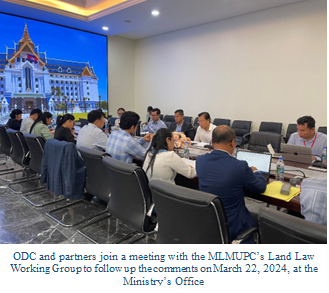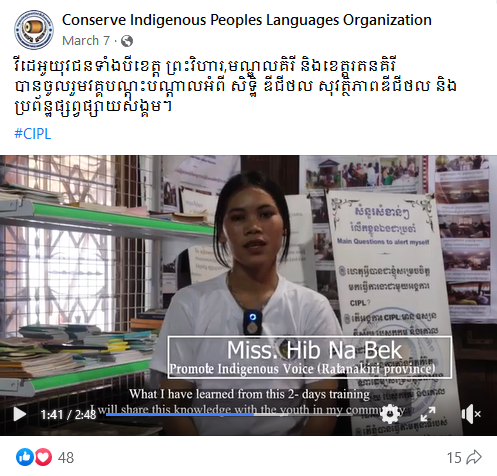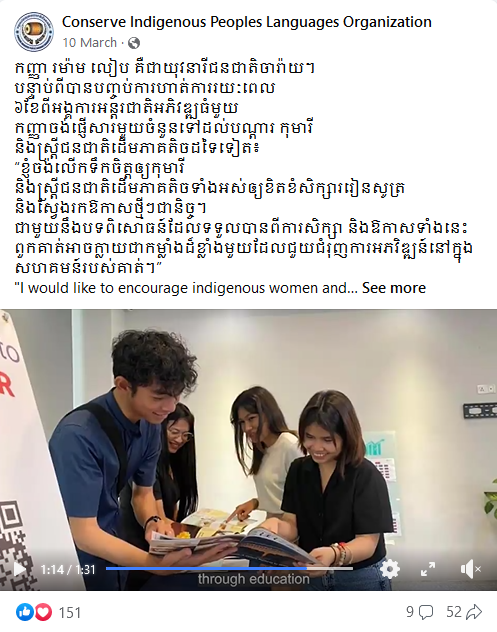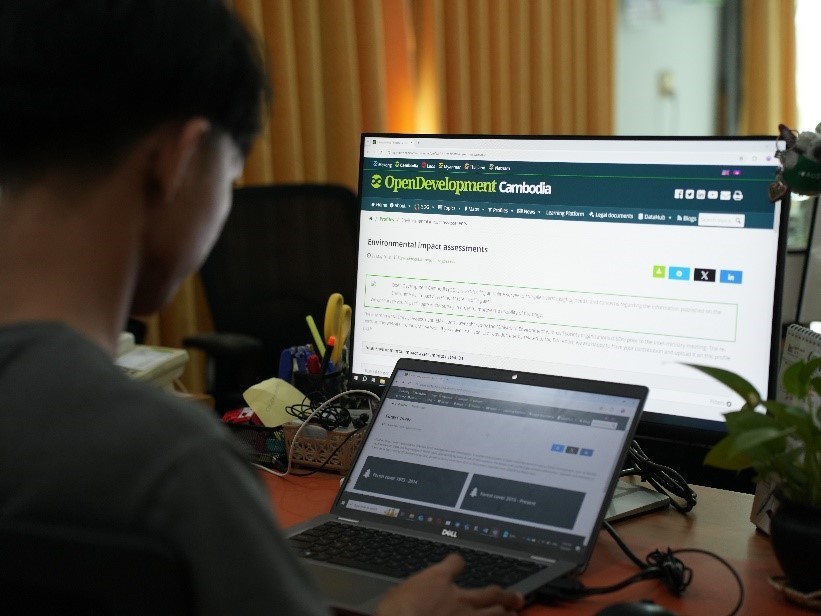The ODC’s Civil Society Support Activity: Cluster Anchor Grant initiative demonstrates the value of collaborative advocacy and strategic participation in achieving legislative reforms that benefit society.
ODC’s path, which focuses on promoting meaningful engagement in natural resource management and building social inclusion, shows devotion, determination, and effective action. Our effort ensures that the voices of communities, Community-Based Organizations (CBOs), and Civil Society Organizations (CSOs) are not only heard but also integrated into the drafting process of the Land Law, which governs land rights and management in Cambodia. In January 2024, ODC began the process by formally requesting the draft Land Law from the Ministry of Land Management, Urban Planning, and Construction (MLMUPC), paving the way for collaborative involvement.

When ODC received the draft Land Law in February 2024, its team immediately began mobilizing efforts. ODC organized coordinated events and dialogues to promote extensive consultations and discussions, involving stakeholders at both the sub-national and national levels. Working with legal experts, ODC ensured that the complexity of the legislation was clarified, allowing for involvement and informed input from the grassroots to the national level. ODC’s collaborative efforts paid off, as we had inputs that reflected diverse viewpoints. With 60 pages of the matrix comments, ODC submitted its inputs to the Ministry within a tight timeframe (February 16), demonstrating its commitment to constructive participation and lobbying.
Beyond the submission, ODC realized the value of ongoing communication and advocacy. Addressing gender equality in land ownership and encouraging continuous talks among CSOs, ODC highlighted concerns and options for future engagement with the Ministry. ODC’s proactive approach resulted in a follow-up meeting request, indicating its commitment to ensure that ODC’s inputs are not just recognized but also included in the legislative process.
“Thank you! I appreciate the inputs and comments from the CSOs on the Draft Land Law. If the government asks the consultant to do it, it might take a million dollars to do so”, H.E. THENG Chan-Sangvar, Secretary of State and MLMUPC’s Land Law Working Group.
The impact of ODC’s combined efforts was clear when the Ministry acknowledged and integrated more than 15 points from ODC’s submission, indicating a significant step toward inclusive policymaking. While ODC’s efforts are not always directly acknowledged, the realization of their combined impact emphasizes the significance of ongoing lobbying and collaborative participation. Contributing to the new draft Land Law, ODC remain committed to working for communities’ rights and interests. Armed with knowledge, unity, and a common vision for a more fair and equitable society, ODC are prepared to face the challenges ahead, confident in its power to affect significant change through collective action.
Similar Stories
CIPL’s video on digital rights and social media training
The training covered the topics of human rights, digital rights, digital media, and digital trends in Cambodia. Pre and post-test results illustrated that 73% of the trainees improved their knowledge regarding digital security and rights.
CSS’s Intern Romam Leap shares her internship experience
CSS produced a short video to highlight the internship experiences of former communications intern and Jarai indigenous youth Romam Leap. The video was very well received by the public on social media, generating approximately 150 reactions, 52 shares, and 2,700 views on Facebook
Improving access to essential EIA reports
To improve access to meaningful and reliable natural resource management (NRM) and environmental protection data, ODC has taken a significant initiative to ensure the availability of Environmental Impact Assessment (EIA) reports. Providing the public with EIA reports is critical to ensuring transparency, accountability, and informed decision-making. It enables the public to understand the potential environmental consequences of proposed projects and hold decision-makers accountable. The public\'s access to this information promotes informed debate, ensures that all stakeholders\' voices are heard, and supports the prevention of environmentally harmful projects. This transparency fosters trust among the government, industry, and the community, resulting in improved environmental outcomes. This will help the relevant stakeholders and community to monitor the project implementation. However, the advocacy for disclosure poses substantial challenges. As a first step, ODC organized a series of workshops on the disclosure of environmental data, specifically EIA reports. These workshops were attended by CSOs, the Ministry of Environment\'s EIA Department, and other stakeholders. During these sessions, ODC emphasized the importance of making EIA reports public and encouraged collaboration to achieve this transparency. In addition to the workshops, ODC wrote several official letters to the MoE and partners, urging them to release the EIA reports. This advocacy was addressed through both formal and informal settings. Despite the government\'s initial stance of \"No Disclosure,\" there was one notable development: ODC was able to find alternative locations where environmental data and reports are stored. While direct requests to the government for EIA report disclosure have yet to make results, ODC identified an alternative approach, i.e., that CSOs with access to EIA reports can share them. Through numerous discussions and advocacy efforts, ODC raised critical questions, including, \"Why can\'t these reports be shared when regulations require their disclosure?\" Furthermore, \"Why aren\'t the CSOs sharing the reports they have?\" ODC continued to lobby key stakeholders through discussions, official requests, and workshops. These persistent efforts, supported by USAID through CSS, returned a significant breakthrough: an agreement to share more than 90 draft EIA reports from the Development and Partnership in Action Organization (DPA). Most of these reports focus on major projects in the extractive industrial sector that interest researchers, advocates, journalists, and CSOs.


